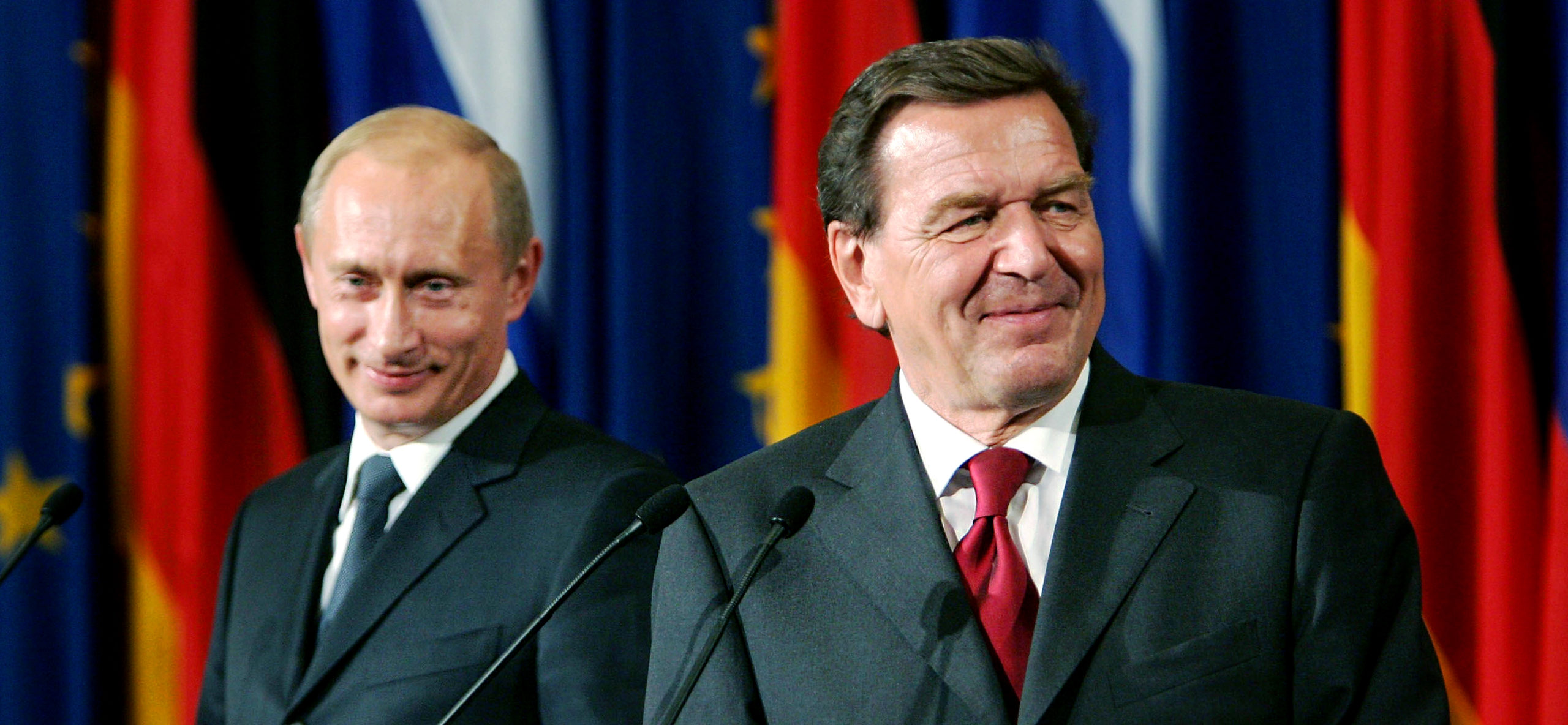Gerhard Schröder’s reputation is in tatters. Seventeen years after finishing his term as Chancellor, he is now facing heavy criticism for his bullish defence of Vladimir Putin and Russia’s invasion of Ukraine. Germany has rightly distanced itself from the man whose affable charm it had once fallen for.
For years, Schröder strove to establish an ‘elder statesman’ role for himself in line with his predecessors Helmut Schmidt and Helmut Kohl. But he struggled to define his role. With the exception of the short-lived tenures of Ludwig Erhard and Kurt Georg Kiesinger, every German post-war chancellor before him had been era-defining in some way. Konrad Adenauer founded West Germany and anchored it in the West; Willy Brandt modernised the country and opened it to the East. Helmut Schmidt defended democracy against terrorism; Helmut Kohl reunified the country in 1990. But what was Schröder’s contribution?
His tenure started in 1998 with great potential. Germans were fed up with the tired rigidity of the Kohl administration. East Germans in particular were hoping a Social Democrat might make good on the failed promises of reunification. Often seen joking, drinking beer and talking to ordinary people, Schröder’s humble background and relative youth made him the man to modernise the country. He had grand ambitions for Germany too, saying that the “gulf between our self-perception” and “the expectations from outside” was too wide. He wanted to boost the country’s confidence as a “middle power” on the world stage.
But instead of increasing Germany’s geopolitical prestige, Schröder dented it. He was the architect of the Nord Stream pipelines, the contracts for which were signed just ten days before he lost the 2005 election. He has since taken leadership roles in the Russian companies Gazprom and Rosneft as well as becoming the chairman of the board of Nord Stream AG (a role he took on only 17 days after his chancellorship had ended). In this regard, Schröder’s legacy will forever be tainted by the way he entangled the fate of Germany with his personal business interests.
Not even Russian aggression in Ukraine has been able to trigger a sense of remorse over his close personal ties to Putin and his regime. Instead the ex-chancellor further disgraced himself by accusing Ukraine of “sabre-rattling” and defending his friends in Moscow. Now three-quarters of Germans want him excluded from the SPD, the current chancellor Olaf Scholz has called on him to consider that a chancellor’s “obligation does not end when one no longer holds the office.” Die Welt even sees his behaviour as ‘bordering on treason.’
Schröder has lost dozens of honourable positions in politics, media, sport and with charities. Only his ex-wife Doris Schröder-Köpf, who sees a role for him as an ‘honest broker’ in the ongoing conflict, and his current wife, Soyeon Schröder-Kim, are still on his side.
He is the architect of his own downfall and the only thing to do now is to step away from the public sphere. This should include giving up his tax-payer funded office in Berlin, where many of his staff have already walked out on him in protest.
Gerhard Schröder has to accept that there is no place for him in German politics anymore. If he stays, he will only bring further disgrace to his party and country.











Join the discussion
Join like minded readers that support our journalism by becoming a paid subscriber
To join the discussion in the comments, become a paid subscriber.
Join like minded readers that support our journalism, read unlimited articles and enjoy other subscriber-only benefits.
Subscribe